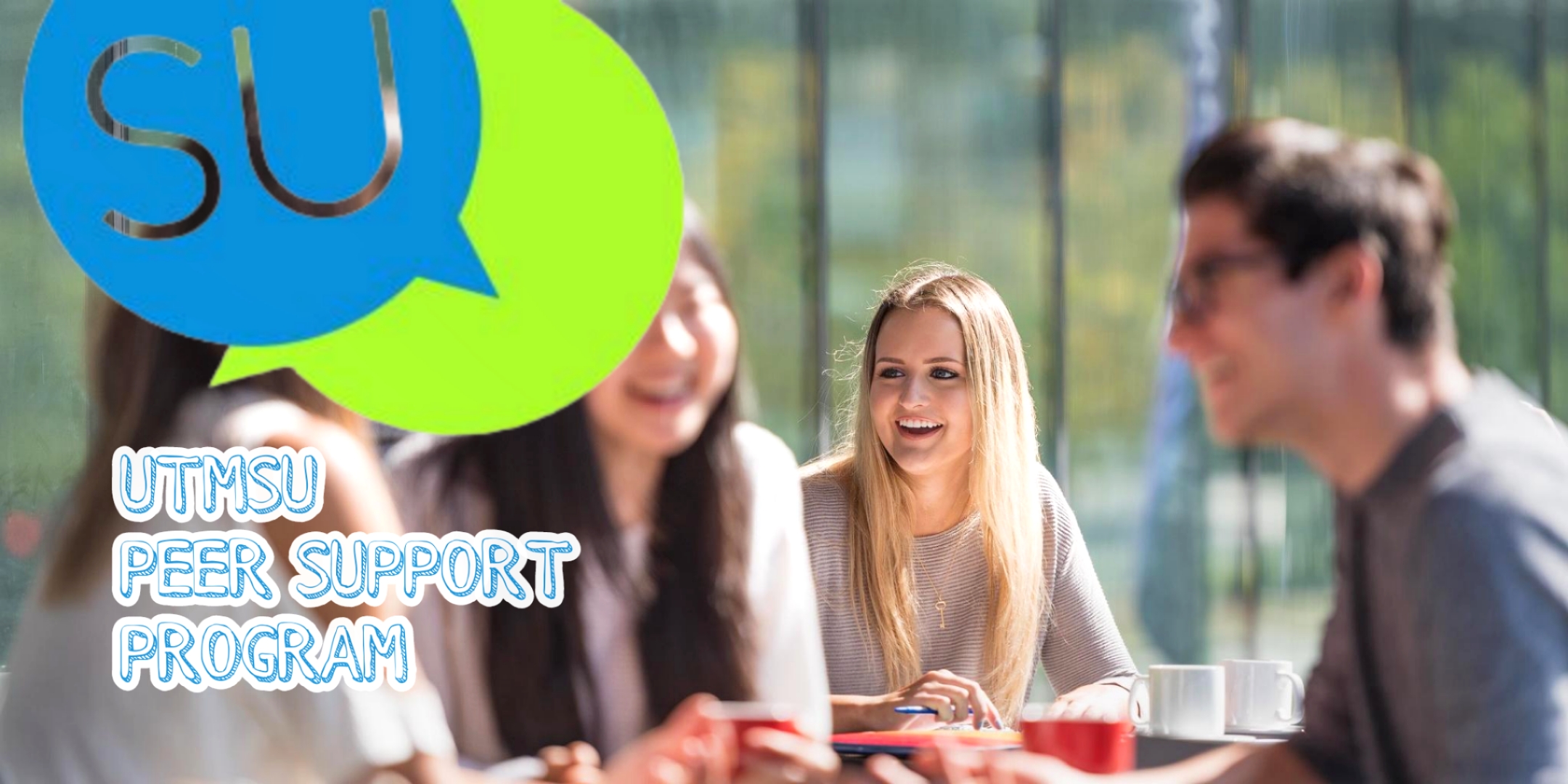How the UTMSU is addressing the limited mental health services on campus
UTMSU President Maëlis Barre on how the Peer Support Program effectively provides peer-to-peer mental health support for students, bridging the gap in services on campus.
Being a student is hard. For that reason, there is no better person to help guide you through university life than other students. Beginning in 2020, the University of Toronto Mississauga Students’ Union (UTMSU) launched its first mental health peer-to-peer counselling service. Put in place to resolve the lack of resources promoting well-being that students felt on campus, the Peer Support Program aims to provide support tailored to students’ individual needs. “The idea came from students expressing the need for mental health resources on campus and the need for those resources to be from peers rather than mental health professionals that students felt were out of touch,” explains Maëlis Barre, the current president of the UTMSU. “Students felt like the [Health and Counselling Centre] wasn’t always comprehensive in the supports that they were offering,” she adds.
In her fourth year at UTM, completing a double major in Astronomy and Physics with a minor in Mathematics, Barre understands the hardships of student life. This is especially true as she is an international student from France. “I was looking into universities that offered bachelor’s degrees in astronomy or astrophysics and to studying abroad to experience a different culture,” says Barre. “UTM gave me the opportunity to study what I was actually passionate about.”
Looking to get involved on campus and build a community in Canada, she began getting involved with the UTMSU, initially volunteering at their free, weekly breakfast bars. She worked her way through the UTMSU as the volunteer coordinator in her second year, the vice-president external in her third, and finally, she was elected as president in her fourth year.
Over the course of the pandemic, the program was run exclusively online. Now, with increased demand from the student body, the UTMSU has created a dedicated space in the student centre and plans to expand to address all students’ needs. However, if desired, students may still choose to attend sessions virtually. Currently, the booking times are on Mondays from 11 a.m. to 3 p.m. and Thursdays from 1 p.m. to 5 p.m. “We are always open to expanding these hours according to the demand for the program,” says Barre.
The UTMSU presents a unique spin on peer-to-peer support by tailoring to the needs of the student through a quick questionnaire completed when requesting an appointment. Then, a staff member directly in charge of the program will help pair the student in need with a student volunteer that has similar lived experiences. While providing support to the student, the program builds comfort by actively showing students that they are not alone.
To become a member of the peer support team, students must complete a series of lessons. These include general mental health training aimed at supporting young adults, a student survivor training to better assist student survivors of violence, as well as general anti-oppression and equity training to ensure that team members provide services in an informed and equitable manner. “We require students to take these trainings because we want to ensure that we are creating the safe place for students that we are promising,” explains Barre.
All volunteers and staff working on the project must additionally sign a confidentiality agreement before officially becoming part of the team. The volunteers use UTMSU emails to ensure that all communication with students in the Peer Support Program stays internal. These are all necessary steps taken by the UTMSU to guarantee confidentiality within the program and to keep students’ personal information safe.
Following each session, students can complete a feedback form. “We want to see if there is anything we can change to make students feel more comfortable within the program,” explains Barre. Students are also able to book a follow-up appointment if they would like, in which they can request to speak to the same peer.
“The first step to getting help is to reach out to the available resources and figure out which one fits your experience the most,” says Barre. She concludes, “I would recommend all students to check out the program because chances are the struggles they are facing as students, other people are facing those same things and they can get help.”
The UTMSU has worked hard to make the program as accessible to students as possible. To request an appointment, fill out the peer support questionnaire linked on their social media accounts or at www.linktr.ee/myutmsu. Alternatively, visit the Info Booth in the Student Centre, where someone can help you access the form.
The peer support program is accessible to students in need of non-emergency aid. If you are in immediate danger to yourself or others, please contact emergency services like the Peel Crisis Services & Coast at 905-278-9036.

